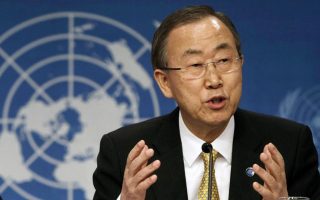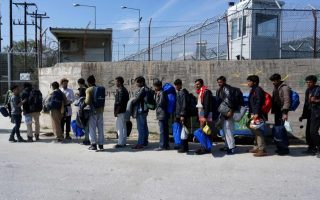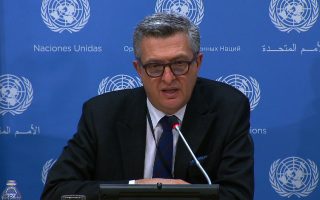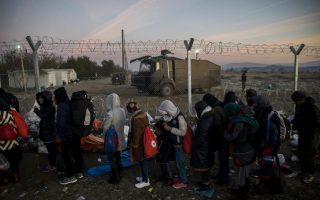With the Balkans closed, new migrant routes may open up
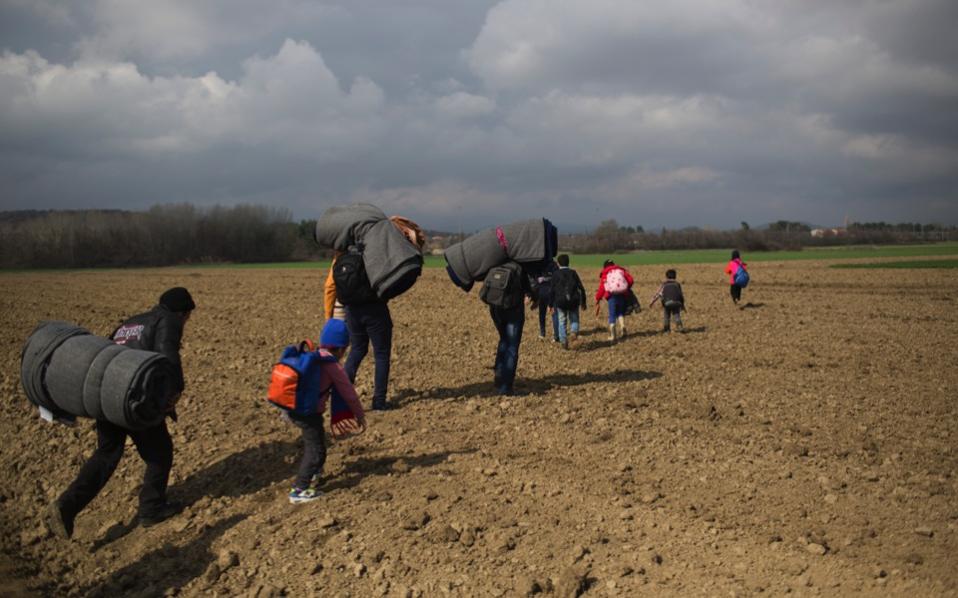
As helicopters buzzed overhead, Bulgaria’s Prime Minister Boyko Borisov was in defiant form at weekend exercises on the border with Greece – meant as a show of force to any would-be migrant considering an alternative way into the EU.
“More than 400 personnel from the army, police and gendarmerie will be permanently based here,” Borisov declared. “Five hundred more can be mobilised within hours.”
The muscle-flexing was another sign that with the route through the Balkans now effectively closed off, other countries are nervous that they might become the new migrant trail – aided by human traffickers.
The main bottleneck on the route north at the moment is at the Greek border with Bulgaria’s neighbor Former Yugoslav Republic of Macedonia (FYROM), where thousands of migrants have been stranded for weeks.
Along with Bulgaria, others concerned include Italy, worried not only about a possible new influx of migrants from lawless Libya but also about people arriving by boat across the Adriatic from Albania, which borders Greece.
This is despite the mooted deal – discussed at an EU summit in Brussels on Monday and meant to be finalised on March 17-18 – between the EU and Ankara under which Turkey will take back all illegal migrants arriving on Greece’s islands.
As well as its 470-kilometre (290-mile) border with Greece, two-thirds of it in tough mountainous terrain, Bulgaria also shares a 260-kilometre (160-mile) frontier with Turkey that experts say could come under pressure in the coming months.
Bulgaria has close to 2,000 police on patrol with dogs on its Turkish border and is extending a 30-kilometre razor-wire fence by another 130 kilometres. In February parliament adopted legislation giving the military greater powers to act on the frontiers.
Italy, meanwhile, is also taking steps to prepare for and prevent any new influx of migrants across the sea directly from Greece or from non-EU Albania, which has a 280-kilometre largely mountainous and forested border with Greece.
The stretch of water between Albania and Puglia, the heel of the boot at the bottom of Italy with numerous beaches perfect for landing boats, is already plied by drug smugglers.
Tens of thousands of Albanian immigrants made the journey in the 1990s and 2000s.
Italian Foreign Minister Paolo Gentiloni told the daily Il Sole 24 Ore that the risk of a new migrant route opening up between Albania and Italy “cannot be ignored” but that cooperation with Tirana would succeed in dealing with the problem.
“Right now there are no concrete signs that routes are being organised to bring migrants to Puglia,” said Cataldo Motta, state prosecutor in the city of Lecce.
“But we remain on high alert for any knock-on effect in our region from the closure of Greece’s northern borders,” he said.
According to Gerald Tatzgern, in charge of Austria’s efforts against human trafficking, since border controls in the Balkans were tightened last month, “increased activity” by criminal gangs has already been noticed.
“It starts already on the Turkish-Syrian border,” Tatzgern told Austrian public radio. “People are being trafficked not only to Greece but also directly (from Turkey) to Bulgaria… and then presumably onwards into Romania.”
He said: “There might be a group of 10-15 people organizing the trafficking. There will be a contact man in Macedonia, a group in Serbia, more in Hungary and then others in Austria and other destination countries.”
Even if migrants do make it into EU member Bulgaria, as around 30,000 did last year – plus an unknown number smuggled in – a warm welcome is far from guaranteed, with Amnesty International complaining about harsh treatment of refugees.
In October, an Afghan migrant was shot dead by border guards – hit by a ricochet from a warning shot, authorities said.
Bulgaria “has a very bad reputation as an undesirable destination,” Ognyan Minchev, director of the Institute for Regional Studies in Sofia, told AFP. In addition, onwards travel to other countries like Romania or Hungary is far from easy.
[AFP]
